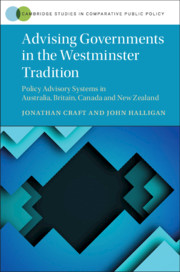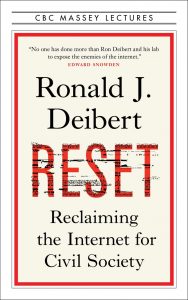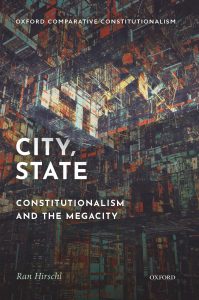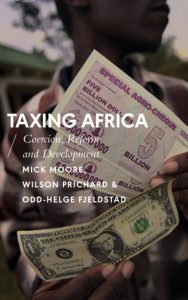
Joseph Carens: Between Aliens and Citizens
This book offers a critical discussion of Joseph Carens’s main works in migration ethics covering themes such as migration, naturalization, citizenship, culture, religion and economic equality. The volume is published on the occasion of the annual Münster Lectures in Philosophy held by Joseph Carens in the fall of 2018. It documents the intellectual exchange with the well-known philosopher Joseph Carens by offering critical contributions on Carens’s work and commentaries of Carens as a reply to these critical contributions. With his various works on migration ethics, Joseph Carens must be seen as one of the leading academics in the political and ethical discourse of migration in the last years. The topic of migration raises questions not only regarding naturalization and citizenship but also cultural, economic and religious differences between aliens, citizens and persons whose status lies in between and calls for further determination. Such questions gain more and more importance in our globalized world as can be seen for example in the context of the refugee crisis in the European Union and the U.S.
The book covers different systematic topics of Carens’s work as can be found in his widely read book “The Ethics of Immigration” but also in further publications. It provides papers with critical discussions of Carens’s work as well as his responses to these, thus enabling and documenting the fruitful dialogue between the contributors and Carens himself. The aim of this book is to sharpen and shed light on Carens’s arguments concerning migration by offering new and critical perspectives and fine-grained analyses.

Advising Governments in the Westminster Tradition: Policy Advisory Systems in Australia, Britain, Canada and New Zealand
In turbulent environments and unstable political contexts, policy advisory systems have become more volatile. The policy advisory system in Anglophone countries is composed of different types of advisers who have input into government decision making. Government choices about who advises them varies widely as they demand contestability, greater partisan input and more external consultation. The professional advice of the public service may be disregarded. The consequences for public policy are immense depending on whether a plurality of advice works effectively or is derailed by narrow and partisan agendas that lack an evidence base and implementation plans. The book seeks to addresses these issues within a comparative country analysis of how policy advisory systems are constituted and how they operate in the age of instability in governance and major challenges with how the complexity policy issue can be handled.

Reset: Reclaiming the Internet for Civil Society
In the 2020 CBC Massey Lectures, bestselling author and renowned technology and security expert Ronald J. Deibert exposes the disturbing influence and impact of the internet on politics, the economy, the environment, and humanity.
Digital technologies have given rise to a new machine-based civilization that is increasingly linked to a growing number of social and political maladies. Accountability is weak and insecurity is endemic, creating disturbing opportunities for exploitation.?
Drawing from the cutting-edge research of the Citizen Lab, the world-renowned digital security research group which he founded and directs, Ronald J. Deibert exposes the impacts of this communications ecosystem on civil society. He tracks a mostly unregulated surveillance industry, innovations in technologies of remote control, superpower policing practices, dark PR firms, and highly profitable hack-for-hire services feeding off rivers of poorly secured personal data. Deibert also unearths how dependence on social media and its expanding universe of consumer electronics creates immense pressure on the natural environment.?In order to combat authoritarian practices, environmental degradation, and rampant electronic consumerism, he urges restraints on tech platforms and governments to reclaim the internet for civil society.

City, State: Constitutionalism and the Megacity
More than half of the world’s population lives in cities; by 2050, it will be more than three quarters. Projections suggest that megacities of 50 million or even 100 million inhabitants will emerge by the end of the century, mostly in the Global South. This shift marks a major and unprecedented transformation of the organization of society, both spatially and geopolitically. Our constitutional institutions and imagination, however, have failed to keep pace with this new reality. Cities have remained virtually absent from constitutional law and constitutional thought, not to mention from comparative constitutional studies more generally. As the world is urbanizing at an extraordinary rate, this book argues, new thinking about constitutionalism and urbanization is desperately needed. In six chapters, the book considers the reasons for the “constitutional blind spot” concerning the metropolis, probes the constitutional relationship between states and (mega)cities worldwide, examines patterns of constitutional change and stalemate in city status, and aims to carve a new place for the city in constitutional thought, constitutional law and constitutional practice.

Partisan Odysseys: Canada’s Political Parties
In Partisan Odysseys, Nelson Wiseman sets out to survey the history of Canada’s political parties. Uncovering distinctive motifs and events in Canadian party politics from pre-Confederation to the present, Wiseman shows how parties have adjusted, adapted, and reinvented themselves in response to significant social and economic changes as well as how parties have, in turn, shaped or reinforced these social forces.
The book begins by tracing the rise of four different types of parties in the nineteenth century. By the end of the century, the Conservative and Liberal parties that continue to this day were firmly established. Among the topics covered throughout are nationalism, minority governments, third parties, and the reconfiguration of party positions. Wiseman concludes by examining changes in the way Canada’s ever-evolving parties have operated and the rise of the modern party as a nimble, enterprising institution compared to its historical antecedent.
Substantial yet accessible, Partisan Odysseys will enlighten students, scholars, and general readers alike.

Private Governance and Public Authority: Regulating Sustainability in a Global Economy
At a time of significant concern about the sustainability of the global economy, businesses are eager to display responsible corporate practices. While rulemaking for these practices was once the prerogative of states, businesses and civil society actors are increasingly engaged in creating private rulemaking instruments, such as eco-labeling and certification schemes, to govern corporate behavior. When does a public authority intervene in such private governance and reassert the primacy of public policy? Renckens develops a new theory of public-private regulatory interactions and argues that when and how a public authority intervenes in private governance depends on the economic benefits to domestic producers that such intervention generates and the degree of fragmentation of private governance schemes. Drawing on European Union policymaking on organic agriculture, biofuels, fisheries, and fair trade, he exposes the political-economic conflicts between private and public rule makers and the strategic nature of regulating sustainability in a global economy.

Identities and Interests Race: Ethnicity, and Affinity Voting
The electoral behaviour of racialized voters and politicians has captured little attention outside the United States.
Identities and Interests offers an entirely new perspective on the role of racial and ethnic identities in Canadian elections. Randy Besco combines survey, candidate, and census data with a series of experiments to show that ethnic self-identification matters far more than self-interest, ideology, or policy. The largest minority groups – Chinese and South Asian Canadians – tend to support candidates of their own ethnicity. Yet inter-minority affinity voting also reveals the potential for “rainbow coalitions” and how minorities themselves think in terms of a white/non-white divide.
Identities and Interests gets to the heart of our understanding of democracy and citizenship. While identity politics are often considered problematic for democratic debate, Besco distinguishes between pure in-group bias and the positive effects stemming from affinity voting and calls for a more nuanced evaluation of the role of identity in politics. Overall, his findings have major implications for social movements, issue opinions, fundraising, and political leadership races.
In an age of increasing multiculturalism and rising racial tension, scholars and students of political science will find this book a compelling read, as will professionals working in the political sphere.

The Shifting Border: Legal Cartographies of Migration and Mobility
The border is one of the most urgent issues of our times. We tend to think of a border as a static line, but recent bordering techniques have broken away from the map, as governments have developed legal tools to limit the rights of migrants before and after they enter a country’s territory. The consequent detachment of state power from any fixed geographical marker has created a new paradigm: the shifting border, an adjustable legal construct untethered in space. This transformation upsets our assumptions about waning sovereignty, while also revealing the limits of the populist push toward border-fortification. At the same time, it presents a tremendous opportunity to rethink states’ responsibilities to migrants. This book proposes a new, functional approach to human mobility and access to membership in a world where borders, like people, have the capacity to move.

Business and Social Crisis in Africa
Much of the time, when confronted with a crisis of national dimensions, businesses do exactly what we expect them to do: they look to their own survival. Occasionally, however, firms in some contexts go beyond this. Based on qualitative, country-based fieldwork in Eastern and Southern Africa, Antoinette Handley examines how African businesses can be key responders to wider social and political crises, often responding well in advance of the state. She reveals the surprising ways in which business responses can be focused, not on short-term profits, but instead on ways that assist society in resolving that crisis in the long term. Taking African businesses in Kenya, Uganda, Botswana and South Africa as case studies, this detailed exploration of the private sector response to crises, including HIV/AIDS and political violence crises, introduces the concept of relative business autonomy, exploring the conditions under which it can emerge and develop, when and how it may decline, and how it might contribute to a higher level of overall societal resilience.

Taxing Africa: Coercion, Reform, and Development
Taxation has been seen as the domain of charisma-free accountants, lawyers and number crunchers – an unlikely place to encounter big societal questions about democracy, equity or good governance. Yet it is exactly these issues that pervade conversations about taxation among policymakers, tax collectors, civil society activists, journalists and foreign aid donors in Africa today. Tax has become viewed as central to African development.
Written by leading international experts, Taxing Africa offers a cutting-edge analysis on all aspects of the continent’s tax regime, displaying the crucial role such arrangements have on attempts to create social justice and push economic advancement. From tax evasion by multinational corporations and African elites to how ordinary people navigate complex webs of ‘informal’ local taxation, the book examines the potential for reform, and how space might be created for enabling locally-led strategies.